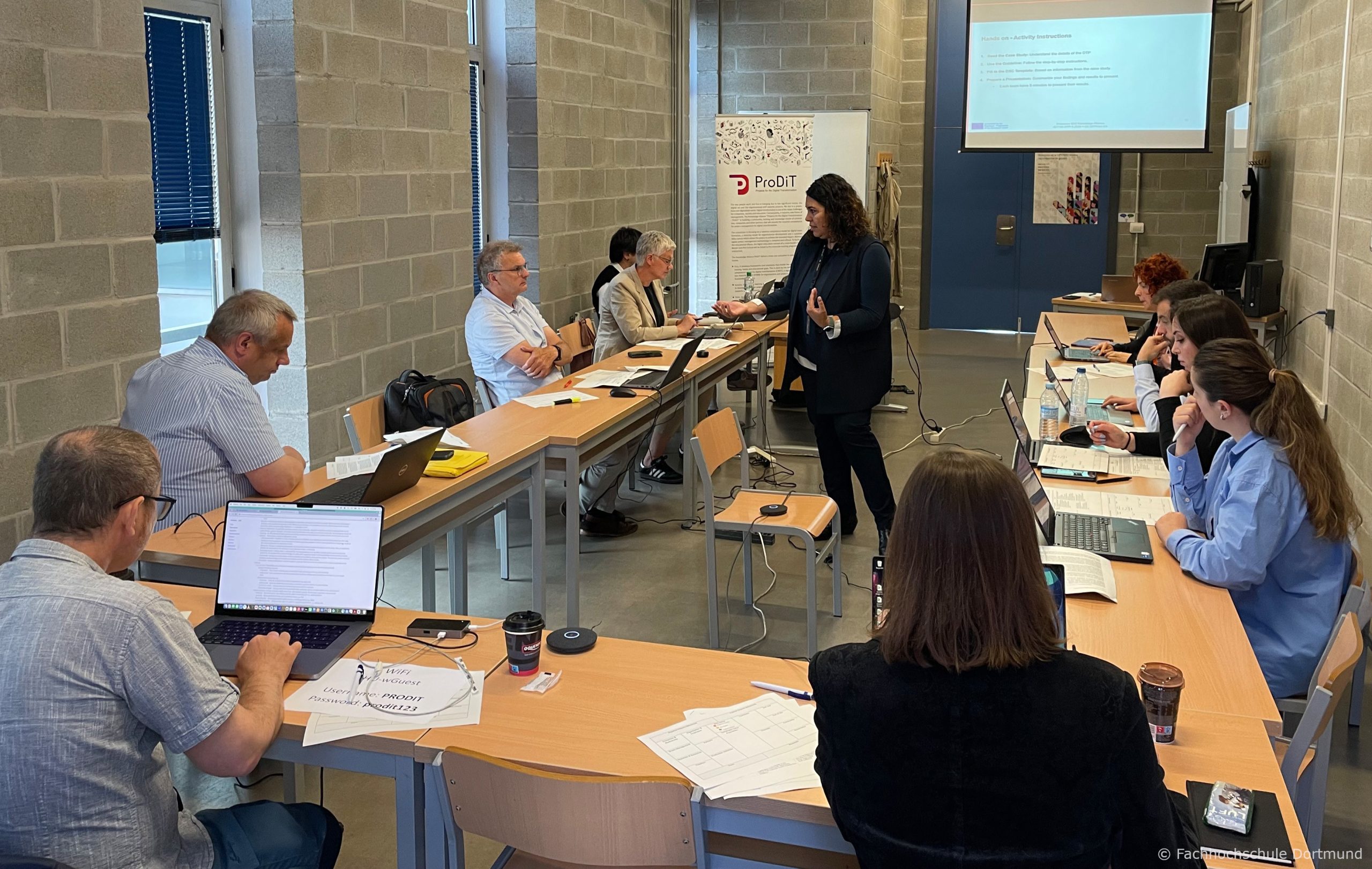Digital Sustainability Canvas and Digital Companies Case Study became core topics of pilot teaching workshops conducted in Bilbao at the University of the Basque Country (UPV/EHU), a partner of the Erasmus+ KA2: Knowledge Alliance “Projects for the Digital Transformation” (ProDiT) project end of May 2024.
From May 24th to 25th, 2024, pilot teaching workshop on the Digital Sustainability Canvas (DSC) took place. During the workshop, an evaluation process of the DSC was conducted. The DSC is a tool designed to detect and visualize the impact of projects on sustainability. A real digital transformation project case study, provided by Kanan Hasanov, Deputy Director of ERA Marketing Centre, Azerbaijan was used. This case study, focused on digital solutions to enhance market research at ERA Marketing Centre, was presented online.
Both online and face-to-face partners, including representatives from industry and academia, applied the DSC tool to this case study. The aim of this event was to refine and validate the DSC and its guidelines, ensuring their comprehensibility and usability. The collaborative activities provided feedback that was crucial for the improvement of the DSC.
In addition, Erasmus+ ProDiT Consortium Meetings were held during these days. The meetings were held to outline the expected results for the rest of the year and to explore dissemination strategies. They were essential for strategic planning and coordination among all project partners. Carsten Wolff led the meetings, which included discussions on key aspects of the Erasmus+ ProDiT project.




Project type: Erasmus+ KA2: Knowledge Alliance
Project Name: Projects for the Digital Transformation (ProDiT)
Project Reference number: 621745-EPP-1-2020-1-DE-EPPKA2-KA

